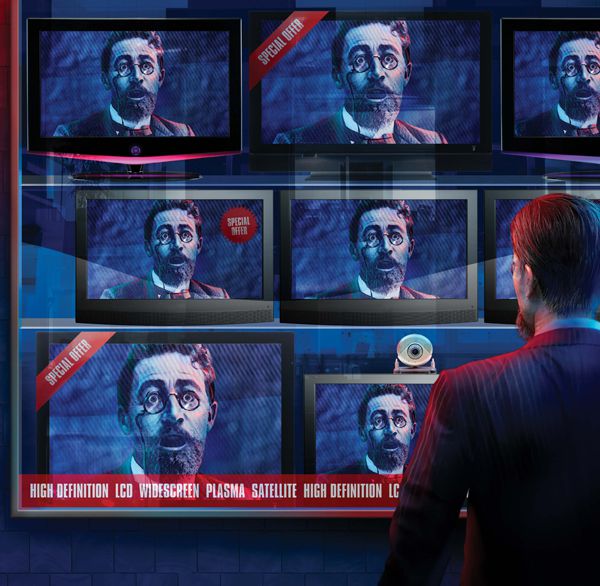CHEKHOV AT PLYMOUTH’S DRUM THEATRE
 Plyouth’s Drum theatre is this month hosting a historical figure. Dan Rebellato’s new play awakens Anton Chekhov, playwright and mirror to Russian Society, around a century after his death and thrusts him into 21st century Britain. Directed by the theatre’s own artistic director, Simon Stokes, the play promises to provide its audience with a new outlook on their own lives.
Plyouth’s Drum theatre is this month hosting a historical figure. Dan Rebellato’s new play awakens Anton Chekhov, playwright and mirror to Russian Society, around a century after his death and thrusts him into 21st century Britain. Directed by the theatre’s own artistic director, Simon Stokes, the play promises to provide its audience with a new outlook on their own lives.
247 spoke with Dan about the motivations behind the story and his unique choice of leading man:
As the play begins the audience watches Chekhov die at the start of the 1900s and then with the second scene he awakens in the modern day society that we all recognise. He discharges himself and is forced to contend with unique types of people who wouldn’t have existed even twenty years ago . . . let along in Chekhov’s time.
So it’s not an historical play? There’s going to be aspects that a younger, more modern audience can relate to?
Definitely, the types of people that Chekhov encounters are going to be more familiar to a younger audience than any other sections of society. He sets up a Twitter account and gets shown around a pop star’s crib! The effect that I‘m hoping for is that Chekhov’s displacement makes him look at the world with fresh (albeit very old eyes. This will then in turn cause the audience to take a step back from those things that they now take for granted and perhaps reconsider certain things that they see around them every day.
So, why make Anton Chekhov the historical figure to go on this journey? Is it necessary for the story that he’s your leading man or do you think someone else from history could have filled this role just as well?
There’s actually two answers to this question that immediately contradict each other. The first answer is no, it doesn’t have to be him. The story is a kind of “Rip-Van-Winkle-one” where anyone could have been brought forward in time from perhaps Queen Victoria’s time and used in this way. I’m sure that would have worked just fine. However, the other answer is yes it really should have been Chekhov as he’s such a fascinating figure who, in his own time, was constantly finding new ways to look at the world. He was such an ironic observer of contemporary life in his own time and this came about particularly because of his role as a playwright. He reconsidered the ways in which theatre both looked at the world and then recreated it for an audience. He pioneered some new approaches that may not be relevant any longer but he wasn’t afraid to ask the questions. For that reason, he’s the perfect looking glass to see the world through for the purposes of this play.
And this run at the Drum is the premiere of the play?
Yes, there was a very different earlier version of the story that I developed at the Royal Holloway University where I work. Much of that earlier work came out of collaboration between my students and myself so I really hope the play has something to say to the younger audience. Chekhov encounters a lot of different aspects of modern society so I hope there’s something there for everyone that will resonate with their own lives and will perhaps enable them to experience an outlook that they’ve not necessarily considered before.
Chekhov in Hell is running at the Drum Theatre until 20 November.



